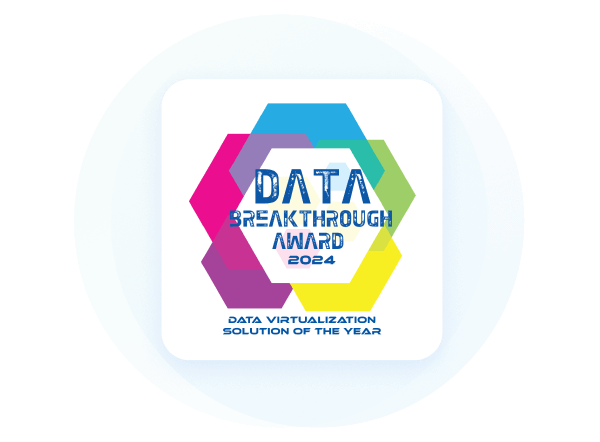Discover how a bimodal integration strategy can address the major data management challenges facing your organization today.
Get the Report →Load ADP Data to a Database Using Embulk
Use CData JDBC drivers with the open source ETL/ELT tool Embulk to load ADP data to a database.
Embulk is an open source bulk data loader. When paired with the CData JDBC Driver for ADP, Embulk easily loads data from ADP to any supported destination. In this article, we explain how to use the CData JDBC Driver for ADP in Embulk to load ADP data to a MySQL dtabase.
With built-in optimized data processing, the CData JDBC Driver offers unmatched performance for interacting with live ADP data. When you issue complex SQL queries to ADP, the driver pushes supported SQL operations, like filters and aggregations, directly to ADP and utilizes the embedded SQL engine to process unsupported operations client-side (often SQL functions and JOIN operations).
Configure a JDBC Connection to ADP Data
Before creating a bulk load job in Embulk, note the installation location for the JAR file for the JDBC Driver (typically C:\Program Files\CData\CData JDBC Driver for ADP\lib).
Embulk supports JDBC connectivity, so you can easily connect to ADP and execute SQL queries. Before creating a bulk load job, create a JDBC URL for authenticating with ADP.
Connect to ADP by specifying the following properties:
- SSLClientCert: Set this to the certificate provided during registration.
- SSLClientCertPassword: Set this to the password of the certificate.
- UseUAT: The connector makes requests to the production environment by default. If using a developer account, set UseUAT = true.
- RowScanDepth: The maximum number of rows to scan for the custom fields columns available in the table. The default value will be set to 100. Setting a high value may decrease performance.
The connector uses OAuth to authenticate with ADP. OAuth requires the authenticating user to interact with ADP using the browser. For more information, refer to the OAuth section in the Help documentation.
Built-in Connection String Designer
For assistance in constructing the JDBC URL, use the connection string designer built into the ADP JDBC Driver. Either double-click the JAR file or execute the jar file from the command-line.
java -jar cdata.jdbc.adp.jar
Fill in the connection properties and copy the connection string to the clipboard.

Below is a typical JDBC connection string for ADP:
jdbc:adp:OAuthClientId=YourClientId;OAuthClientSecret=YourClientSecret;SSLClientCert='c:\cert.pfx';SSLClientCertPassword='admin@123'InitiateOAuth=GETANDREFRESH
Load ADP Data in Embulk
After installing the CData JDBC Driver and creating a JDBC connection string, install the required Embulk plugins.
Install Embulk Input & Output Plugins
- Install the JDBC Input Plugin in Embulk.
https://github.com/embulk/embulk-input-jdbc/tree/master/embulk-input-jdbc - In this article, we use MySQL as the destination database. You can also choose SQL Server, PostgreSQL, or Google BigQuery as the destination using the output Plugins.
https://github.com/embulk/embulk-output-jdbc/tree/master/embulk-output-mysqlembulk gem install embulk-output-mysql
embulk gem install embulk-input-jdbc
With the input and output plugins installed, we are ready to load ADP data into MySQL using Embulk.
Create a Job to Load ADP Data
Start by creating a config file in Embulk, using a name like adp-mysql.yml.
- For the input plugin options, use the CData JDBC Driver for ADP, including the path to the driver JAR file, the driver class (e.g. cdata.jdbc.adp.ADPDriver), and the JDBC URL from above
- For the output plugin options, use the values and credentials for the MySQL database
Sample Config File (adp-mysql.yml)
in:
type: jdbc
driver_path: C:\Program Files\CData[product_name] 20xx\lib\cdata.jdbc.adp.jar
driver_class: cdata.jdbc.adp.ADPDriver
url: jdbc:adp:OAuthClientId=YourClientId;OAuthClientSecret=YourClientSecret;SSLClientCert='c:\cert.pfx';SSLClientCertPassword='admin@123'InitiateOAuth=REFRESH
table: "Workers"
out:
type: mysql
host: localhost
database: DatabaseName
user: UserId
password: UserPassword
table: "Workers"
mode: insert
After creating the file, run the Embulk job.
embulk run adp-mysql.yml
After running the the Embulk job, find the Salesforce data in the MySQL table.
Load Filtered ADP Data
In addition to loading data directly from a table, you can use a custom SQL query to have more granular control of the data loaded. You can also perform increment loads by setting a last updated column in a SQL WHERE clause in the query field.
in:
type: jdbc
driver_path: C:\Program Files\CData[product_name] 20xx\lib\cdata.jdbc.adp.jar
driver_class: cdata.jdbc.adp.ADPDriver
url: jdbc:adp:OAuthClientId=YourClientId;OAuthClientSecret=YourClientSecret;SSLClientCert='c:\cert.pfx';SSLClientCertPassword='admin@123'InitiateOAuth=REFRESH
query: "SELECT AssociateOID, WorkerID FROM Workers WHERE [RecordId] = 1"
out:
type: mysql
host: localhost
database: DatabaseName
user: UserId
password: UserPassword
table: "Workers"
mode: insert
More Information & Free Trial
By using CData JDBC Driver for ADP as a connector, Embulk can integrate ADP data into your data load jobs. And with drivers for more than 200+ other enterprise sources, you can integrate any enterprise SaaS, big data, or NoSQL source as well. Download a 30-day free trial and get started today.






